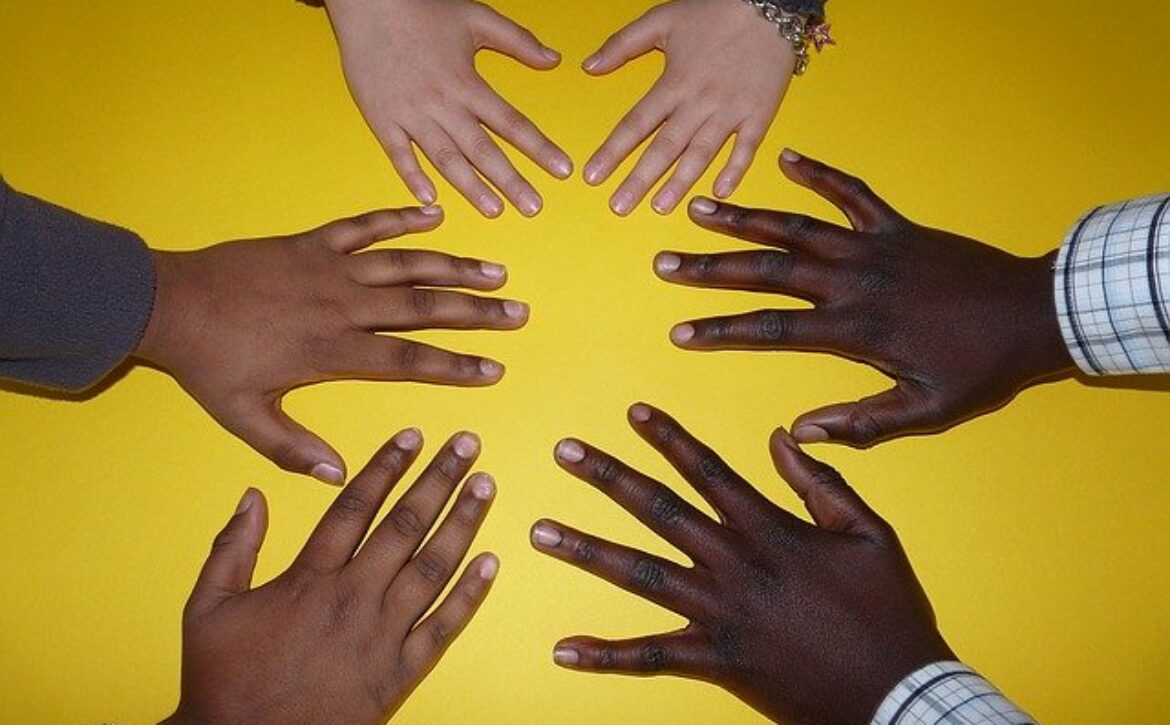The Experiences of Community Foundations Amidst COVID-19 Responses

In the seventh instalment of Society Talks, the conversation focused on the experiences of the community foundations who play a major role in meeting the needs of marginalized people, during COVID-19. Panelists included Beulah Fredericks, Executive Director of the Community Development Foundation Western Cape, Jeremy Maarman, Director for the Initiative of Community Advancement, Niaina Harijaona,Technical Coordinator of the Citizens Organization for Common Interests Defense Madagascar)and Busisa Moyo, Chairman of I Am For Bulawayo Fighting COVID-19 Trust (Zimbabwe); facilitated by Marlon Zakeyo, of the Southern Africa Trust.
Beulah opened the narrative with a brief background of the work she does within the Community Development Foundation. Focusing on the upliftment and empowerment of women and children, Youth Civic Engagement, the Green Economy (sustainable livelihoods and the taking back of empty spaces), and the Giving Economy (helping communities with horizontal philanthropy), Beulah specifically listens for burning issues within communities, talking less and listening more. The Foundation also covers the constitutional building of CBOs, looking at issues of governance, accountability, capacity building and training.
Jeremy started with an explanation of community foundations– mechanisms for community giving, financial and other, usually based around a community fund that addresses specific issues. Community members can give to the fund by debit orders or through fund raising events, thereby giving the community the ability to fund and support their own development.
Niaina summarized the general feeling in Madagascar towards COVID-19 as being very fearful, with civil society organizations being limited by travel restrictions, experiencing delays with activity implementation, delays with payments and struggling to continue their work.
Busisa outlined the situation of COVID-19 in Zimbabwe, saying they have had a spike in infections since people have started returning from South Africa. Currently on Level 2, Zimbabwe schools and churches remain closed, as well as some high-risk business sectors. He mentioned the broad suffering by many of the population due to the lockdown, and the inability to generate an income.
In discussing the impact on community foundations, Beulah explained how they were not set up for remote working. She explained how their group, the CDF, had no new funding so started the response to the pandemic on aback foot – many of the initiatives and fund-raising events were suspended – so they focused their efforts on solidarity. She said the overwhelming call from the community was not for money, rather for emotional support. The community-led response was impressive, enabling feeding programmes through the existing networks. The gaps she noted were in mental health, access to information and the lack of technology. Sadly, she speculated that the foundation may not survive many more months.
Jeremy said that the bringing of people together has not been possible, thwarting fundraising efforts and planned engagements. In response, they have launched an online talk show, with a strong youth focus, discussing among others, mental health issues. They were asked to deliver food security services in their ward, using Meal on Wheels and community donations.
Niaina said the response was mainly focused on the affected urban areas, distributing a mix of cash allowances, and food and hygiene parcels. The biggest problem was identifying who should benefit from these subsidies, which was difficult due to high levels of corruption, with a lack of transparency and reporting on funds used. The civil society groups are trying to advocate for more collaboration and exchange of information with other groups and donors.
Busisa explained how they have not had the resources to reach everybody, especially the marginalized communities on the outskirts of the region, but the government has promised social grants to vulnerable groups in rural areas. The real challenge is the cities, where hunger has become a burning issue. The civil society groups are having to identify these families and act fast.
Beulah explained how the approach initially was to deliver food parcels, but in a bid to restore dignity, they shifted to giving out small grants, which included money for food, taxi fares and data. She felt this was as strategic move on the part of the foundation, to show the community they were acting on their requests, really listening, the outcome of which promoted the horizontal sharing among community members.
In conclusion, Jeremy said the biggest lesson learned showed that people can get through whatever life throws at them, collectively and with collaboration. Niaina said their biggest lesson was the relations the civil society organizations have at grassroots level, during the travel restrictions that prevented many of their activities. This is what enabled them to know what was happening across the country. Another key point they noticed was with the increased reliance on technology to communicate, they had to rely on the youth-based organizations to facilitate. Busisa’s key observations were: to pay attention to the development of health care sector, building resilience through private, corporate and public sector cooperation and participation; to study value chain resilience, that is to be able to provide at least food for the country in times of crisis; and to apply this thinking to the region (Sub Saharan Africa), looking at neighboring countries and the need for cross-border collaboration in times of a global pandemic.
Click here to watch the full webinar
=========================
Society Talks is a weekly public dialogue hosted by the Southern Africa Trust through a live stream on YouTube. The dialogue brings together stakeholders within the development and business community, civil society and the public to inform, engage and share experiences with the broader society.
Connect and participate every Wednesday at 16h00 Central Africa time (GMT +2).









